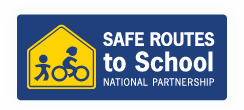You might have caught this story about San Francisco's new parking app on NPR a few days ago. Part of the pilot SF Park program, the app helps improve parking efficiency by providing real-time information on parking space availability--and price (the other key component of the program is demand-based pricing)-- so that drivers can head directly to the spot they want rather than circling endlessly in search of the elusive golden parking spot (i.e. the one that's free and right in front of where they want to go).
While the app has the laudable goal of reducing traffic congestion (much of which is caused by drivers stalking parking spaces) and its associated environmental impacts, as noted in the NPR segment it also presents users with the virtually irresistible temptation to engage in distracted driving. Although the program's creators insist that they "always encourage drivers to look at the app before they start driving," the reality is that the app won't work nearly as well unless people use it to make decisions in real time; drivers need to call up the information right before they arrive at their destination, not before they start driving.
To be fair to SF Park, the same is true of many other apps out, such as those showing real-time traffic congestion. Apps like these can help to reduce congestion and the problems associated with it, but only when drivers can use them to change routes on the spot. For all of the talk about discouraging distracted driving, it's illogical to pretend that real-time traffic and parking apps don't rely on it.
So how do we continue to reap the benefits of this technology without creating safety problems for pedestrians and drivers alike? Well, my dream is to take driving out of the driver's hands entirely, and let cars handle that themselves. But since that seems to be a few years off, we could at least update our apps to allow users to enter their preferences in advance, and then let the app tell them (automatically and audibly, without having to muddle around with a mobile device) what to do.
For example, a San Franciscan could enter their destination before they start driving, along with the maximum amount they would be willing to pay for parking, and the app could direct them to the closest space in their price range. Or the app could get super-fancy and allow the user to enter a price/distance combo (e.g. a preference to pay up to $2 more for a premium space right up front), and direct the user appropriately.
Sadly, I'm only a transpo--not a techno--geek, so I can't implement this idea myself. But there must be someone, particularly in the haven of all things techno that is the Bay Area, who can?
While the app has the laudable goal of reducing traffic congestion (much of which is caused by drivers stalking parking spaces) and its associated environmental impacts, as noted in the NPR segment it also presents users with the virtually irresistible temptation to engage in distracted driving. Although the program's creators insist that they "always encourage drivers to look at the app before they start driving," the reality is that the app won't work nearly as well unless people use it to make decisions in real time; drivers need to call up the information right before they arrive at their destination, not before they start driving.
To be fair to SF Park, the same is true of many other apps out, such as those showing real-time traffic congestion. Apps like these can help to reduce congestion and the problems associated with it, but only when drivers can use them to change routes on the spot. For all of the talk about discouraging distracted driving, it's illogical to pretend that real-time traffic and parking apps don't rely on it.
So how do we continue to reap the benefits of this technology without creating safety problems for pedestrians and drivers alike? Well, my dream is to take driving out of the driver's hands entirely, and let cars handle that themselves. But since that seems to be a few years off, we could at least update our apps to allow users to enter their preferences in advance, and then let the app tell them (automatically and audibly, without having to muddle around with a mobile device) what to do.
For example, a San Franciscan could enter their destination before they start driving, along with the maximum amount they would be willing to pay for parking, and the app could direct them to the closest space in their price range. Or the app could get super-fancy and allow the user to enter a price/distance combo (e.g. a preference to pay up to $2 more for a premium space right up front), and direct the user appropriately.
Sadly, I'm only a transpo--not a techno--geek, so I can't implement this idea myself. But there must be someone, particularly in the haven of all things techno that is the Bay Area, who can?








